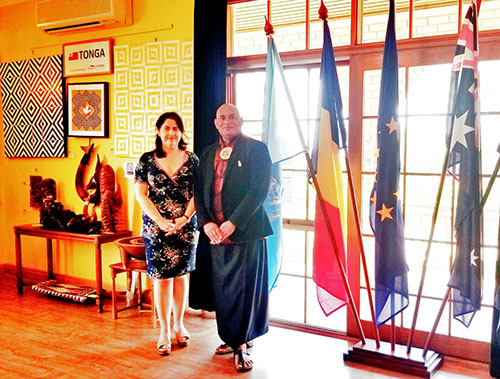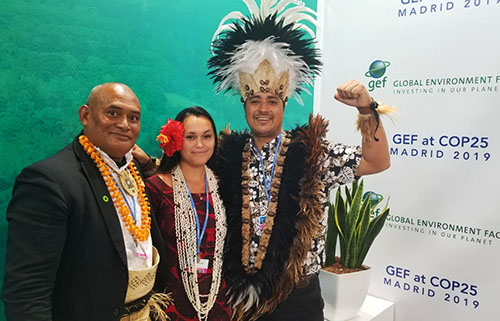Our Work
At the 53rd meeting of the Pacific Islands Forum Leader's Meeting (30 August 2024), we were honored to present THE LAUNCHING OF THE WHALE CORRIDOR CONCEPT NOTE as the main side event at the Fa’onelua Convention Center, Nuku'alofa, Tonga. Whales in Tonga and worldwide play a crucial role in maintaining the health of marine ecosystems, and climate change and human activity are adversely effecting the health of oceans worldwide. We are proposing a holistic approach to regenerate the entire ecosystem infrastructure that supports whales. This approach would not only safeguard the future of whales but also the health and resilience of the entire marine ecosystem.
Click here for an Overview of the Whale Corridor Concept Note.
OHAI Tonga is actively engaged in vital climate change and food security projects.
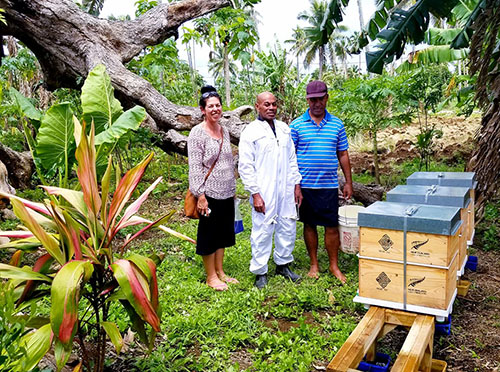
OHAI Project Manager Debra Allan with the bee keeping food security project, supported by New Zealand High Commission and in partnership with Volunteer Service Abroad.
Promoting sustainability for food production and agriculture that is resilient to climate change.
OHAI is actively engaged in facilitating bee polination in Tonga, which is vital for agriculture and food security. Funded by the New Zealand High Commission, we partnered with Volunteer Service Abroad (www.vsa.org.nz) to engage a volunteer beekeeper who assists OHAI in helping the community establish beehives for pollination of food crops and the production of honey (as a boutique industry). Our project encourages women and youth to learn about bee keeping and agriculture.
The project addresses a serious issue in Tonga: The limited numbers of bees to pollinate crops creates a food security risk for root crops that serve as staples. Establishing a bee industry (bee-keeping and honey production) is an effective way to combat the impact of climate change as it relates to food security.
OHAI Tonga is advancing understanding and knowledge about the impact of climate change in Tonga and the Pacific.
We regularly attend United Nations Climate Change Conferences and meet with delegates to discuss climate change issues in Tonga, the Pacific, and worldwide, and to plan activites.
We participate in the Climate Reality Project headed by Al Gore, where Uili Lousi, Debra Allan, and Dr. David Sattler serve as leaders.
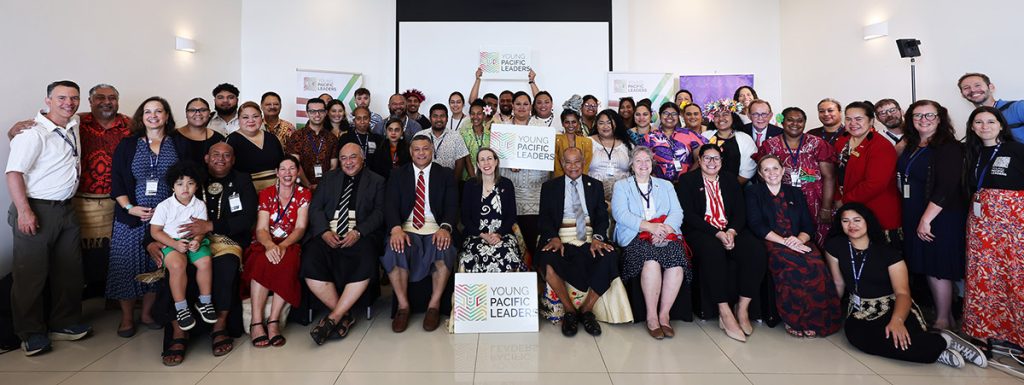
Young Pacific Leaders Workshop on Media Literacy and Journalism, in collaboration with Western Washington University (U.S.A), Grant funded by the U.S. Department of State, Nuku'alofa, Tonga, September 2024
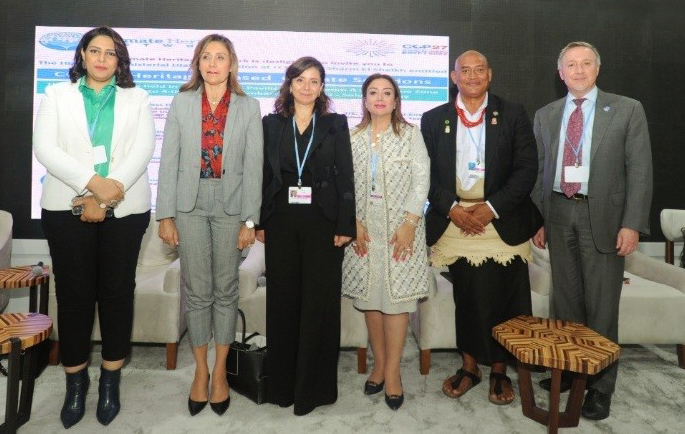
Princess Dana Firas of Jordan, Uili Lousi, and other panelists at the cultural heritage presentation, Egyptian Pavillion, United Nations Climate Change Conference, Egypt, 2022
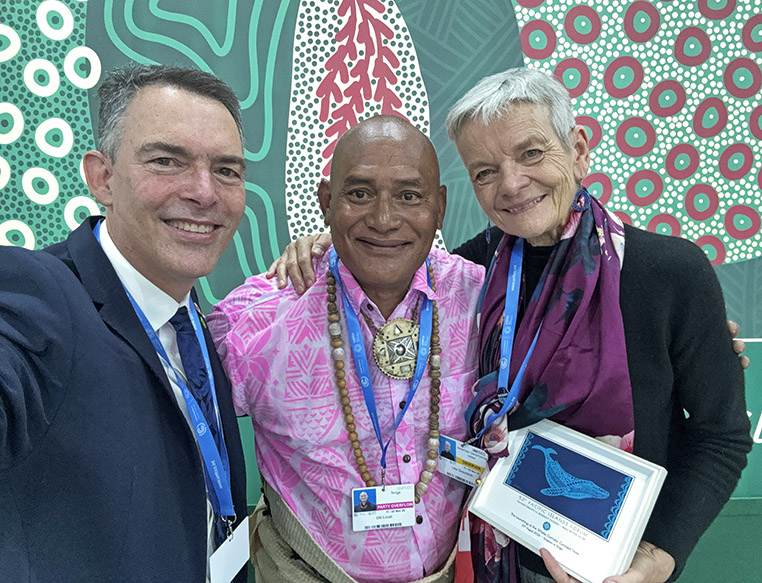
Dr. David Sattler (L), Uili Lousi, and Dr. Lisa Graumlich (R) at the United Nations Climate Change Conference, Azerbaijan, 2024
In 2022-2023, we produced and conducted an international "My Climate Change Story Master Class" for youth in Tonga, Fiji, and Tuvalu. Funded by the U.S. Embassy, this innovative and engaging multi-session workshop taught youth ways of creating informative and captivating narratives to educate people worldwide about the impact of climate change in their Pacific Island communities.
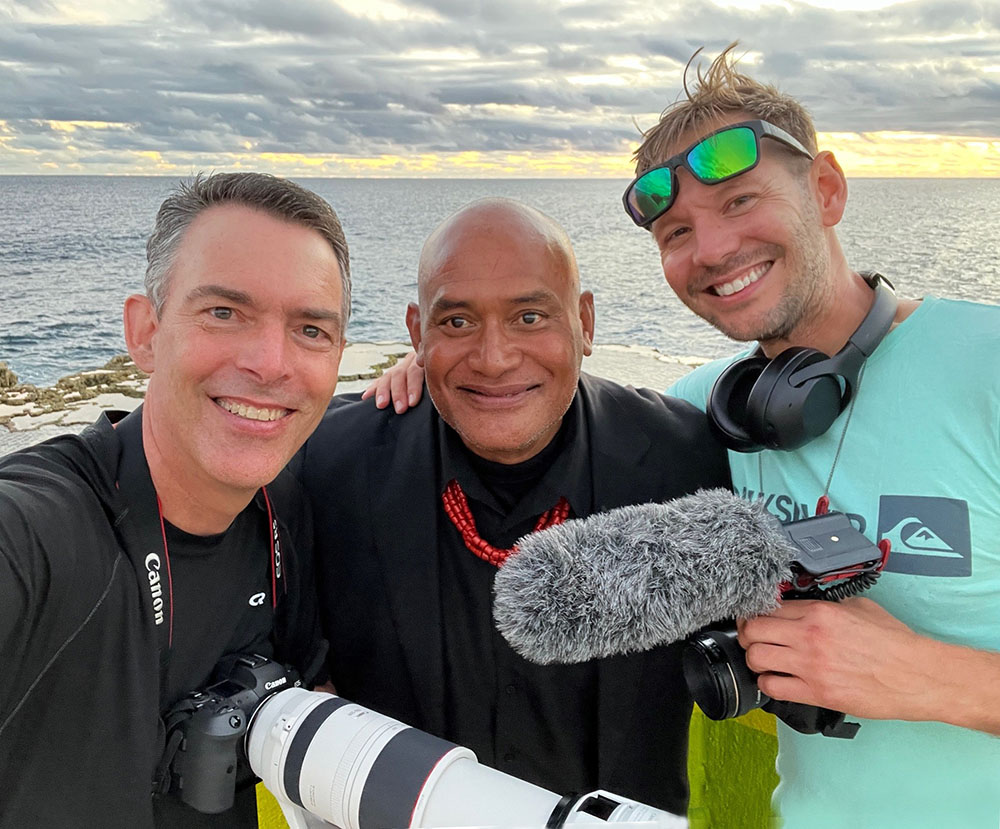
My Climate Change Story Master Class planning meeting in Tonga to develop an innovative workshop for youth in Pacific Island nations, (L - R) Dr. David Sattler, Uili Lousi, Rhys Logan, 2022
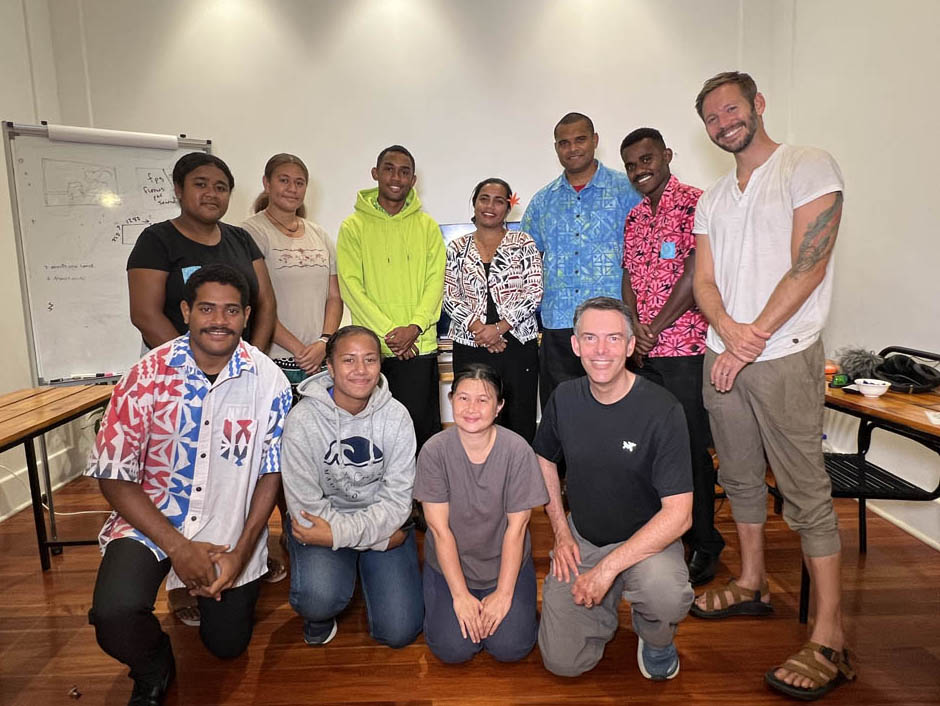
My Climate Change Story Master Class in Fiji, March 2023
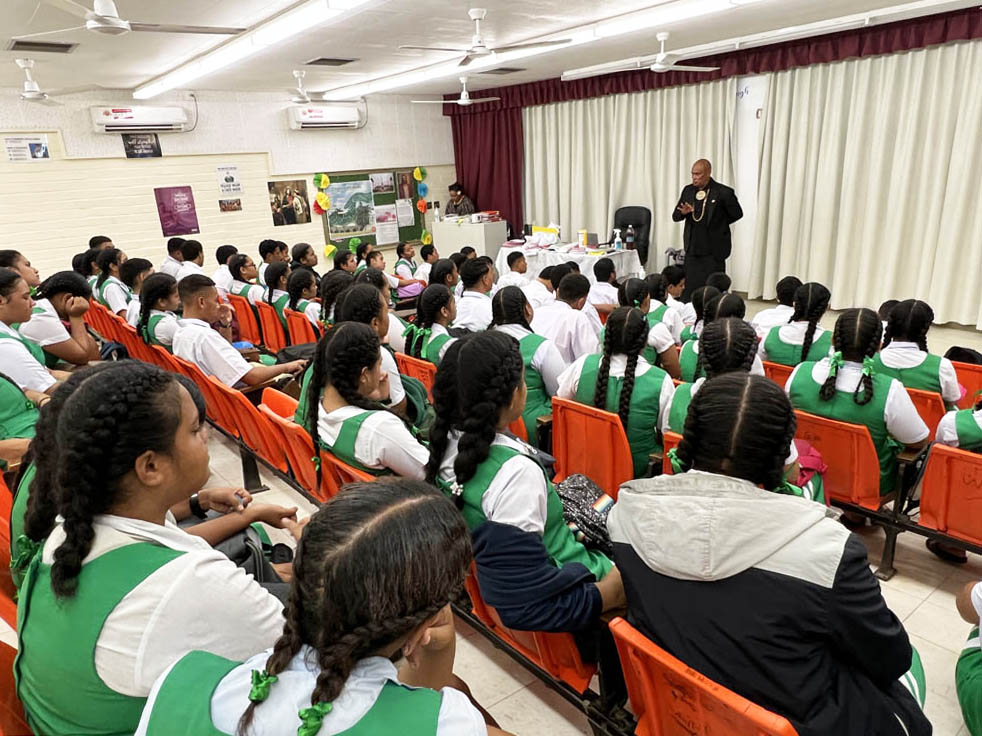
Uili Lousi discusses climate change with youth in Tonga, March 2023
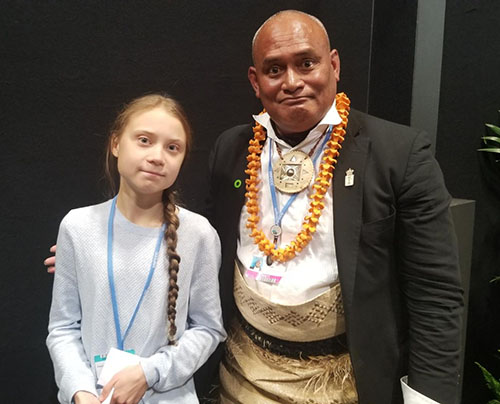
Uili Lousi with Greta Thunberg, United Nations Climate Change Conference, Spain, 2019
During National Climate Change Awareness Week in 2022, OHAI Tonga collaborated with communities to remove rubbish and plant trees for the health and vitality of the environment, from bees to butterflies to the beautiful ocean.
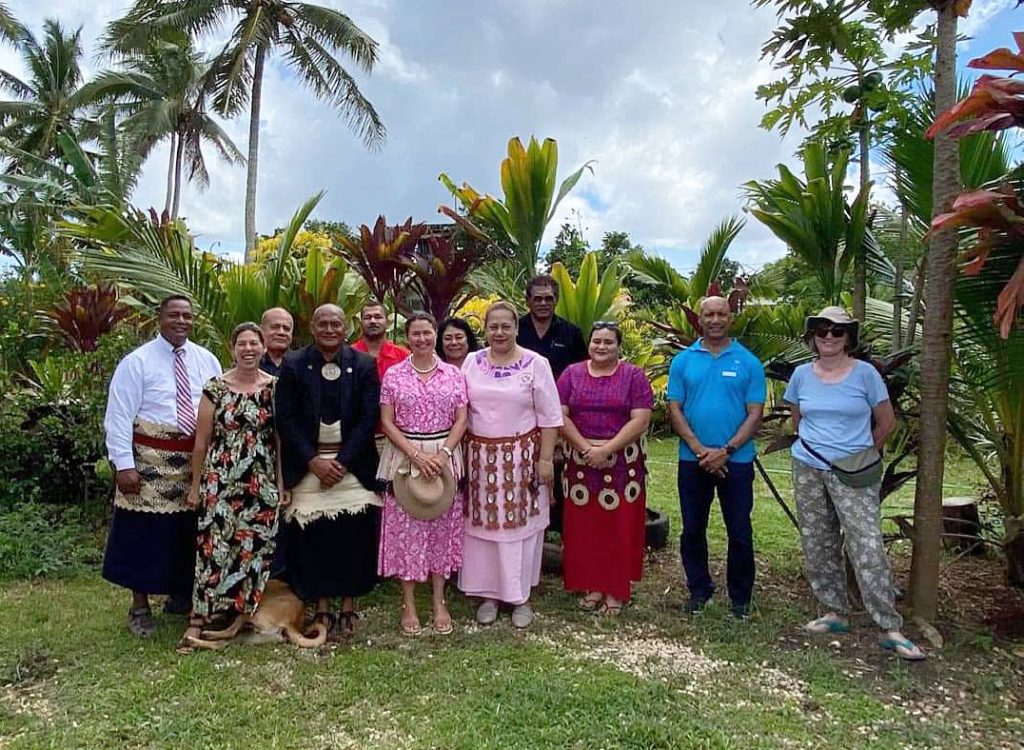
OHAI Senior Administrator/Project Manager Debra Allan, Uili Lousi, and the Australian High Commissioner to Tonga Rachel Moore, and others at OHAI, Tonga, 2022
Climate change is disproportionately impacting regions such as the South Pacific. Warming ocean temperatures as a result of climate change are creating more powerful cyclones with increased potential to destroy our homes and communities. As ocean acidification becomes more prevalent, our beautiful and vital coral reefs, which provide a home for fish and other sea life, are becoming lifeless. These losses have serious consequences locally and internationally, as supplies of tuna and other sources of seafood are unable to replenish/restock to meet world demand.

National Climate Change Awareness Week, Tonga, 2022
Video: Inaugural OHAI Tonga International Day of Forests tree planting event, March 2023.
Video: OHAI Tonga Honey Bee Food Security Project. New Zealand TV1 News Story, February 2023.
Video: OHAI Tonga Bee Project. Video Produced and Directed by Josua 'Ake, Tonga, August 2020.
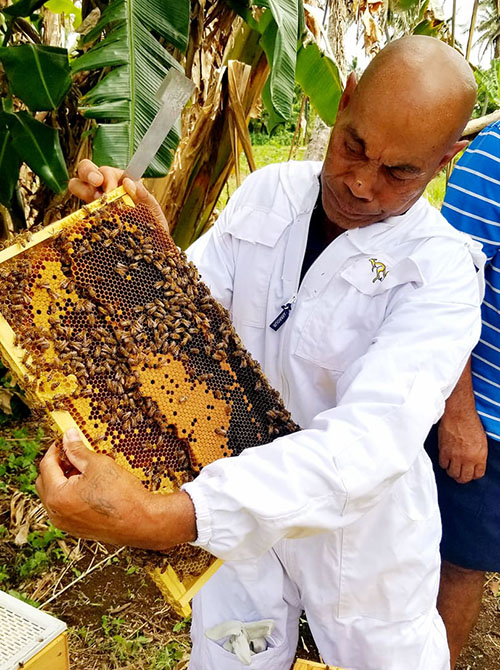
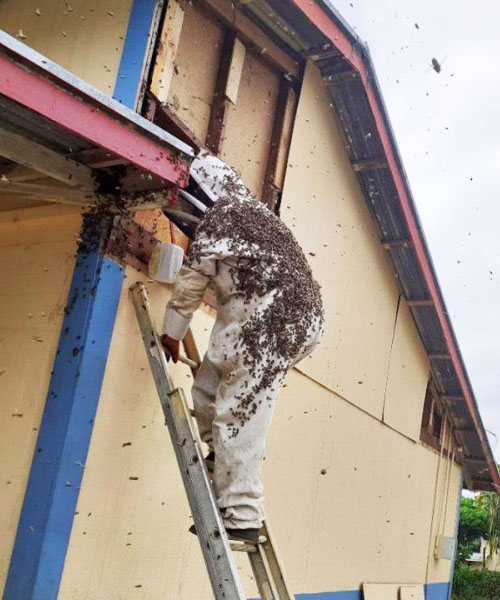

Uili Lousi at Climate Reality Project, Australia, 2019
OHAI Tonga provided support to projects that among the first, if not the first, to examine climate change risk perception and behavioral adaptation in Tonga, conducted by Dr. David Sattler (Professor, Western Washington University) and colleagues. The projects were conducted in the wake of Cyclone Gita, which created extensive damage across Tonga, and whose strength was magnified by climate climate. The resulting peer-reviewed academic articles are published in the Journal of Environmental Psychology in 2023 and a book chapter in 2020 (see below).
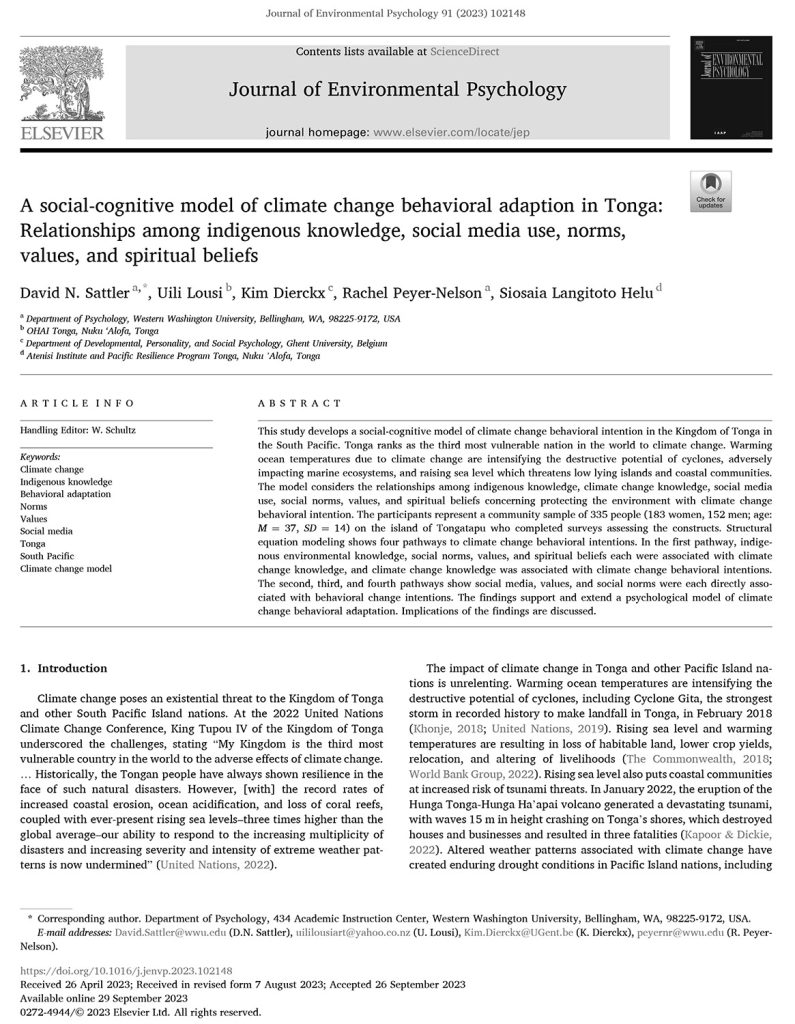

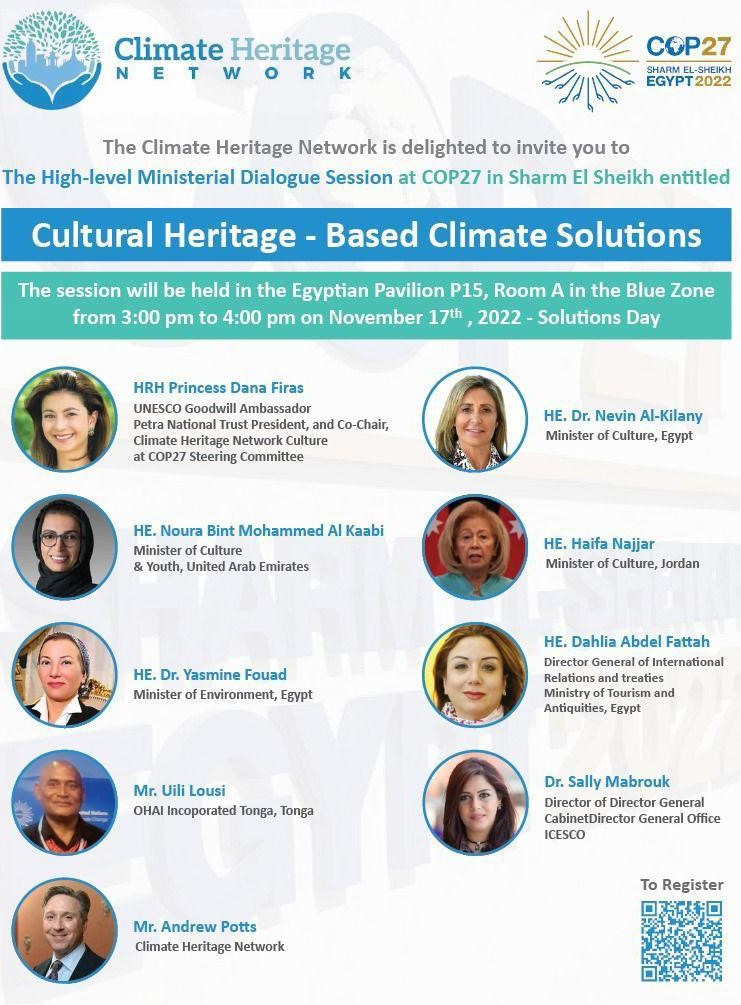
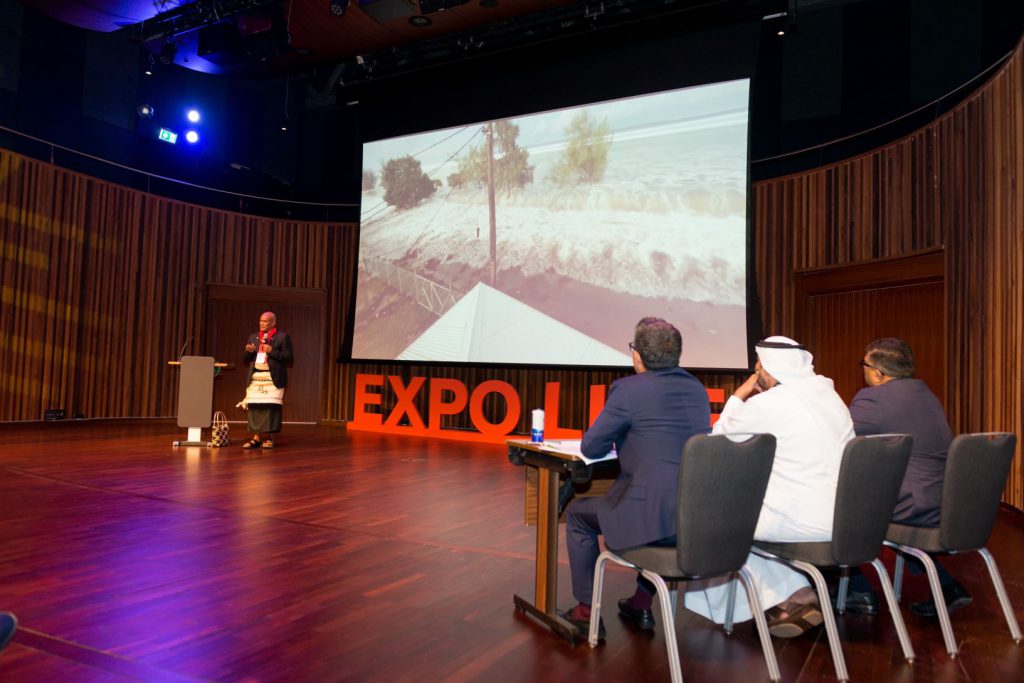
Uili Lousi at Expo Live Innovation Program, Dubai, 2023
